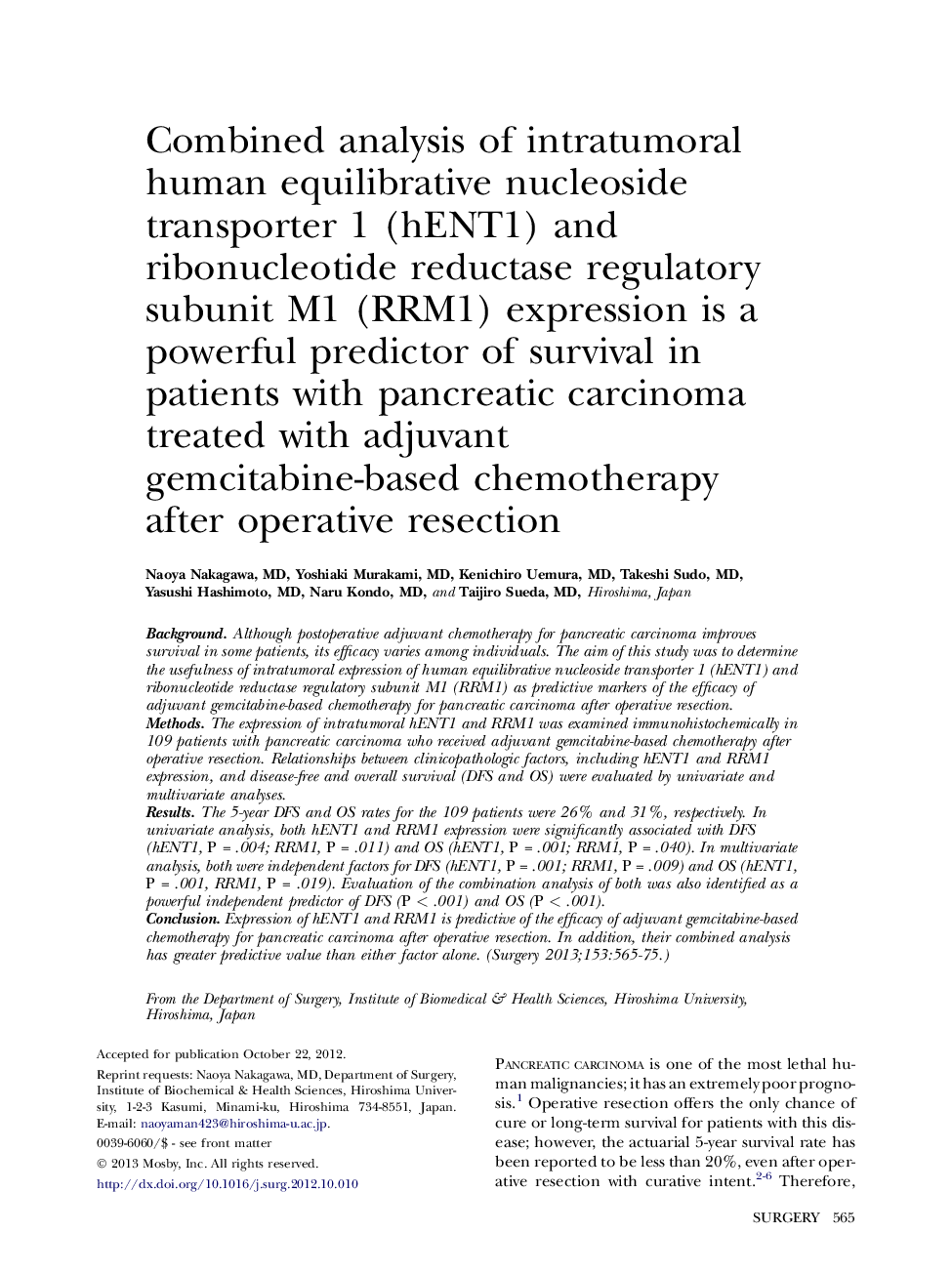| Article ID | Journal | Published Year | Pages | File Type |
|---|---|---|---|---|
| 4307776 | Surgery | 2013 | 11 Pages |
BackgroundAlthough postoperative adjuvant chemotherapy for pancreatic carcinoma improves survival in some patients, its efficacy varies among individuals. The aim of this study was to determine the usefulness of intratumoral expression of human equilibrative nucleoside transporter 1 (hENT1) and ribonucleotide reductase regulatory subunit M1 (RRM1) as predictive markers of the efficacy of adjuvant gemcitabine-based chemotherapy for pancreatic carcinoma after operative resection.MethodsThe expression of intratumoral hENT1 and RRM1 was examined immunohistochemically in 109 patients with pancreatic carcinoma who received adjuvant gemcitabine-based chemotherapy after operative resection. Relationships between clinicopathologic factors, including hENT1 and RRM1 expression, and disease-free and overall survival (DFS and OS) were evaluated by univariate and multivariate analyses.ResultsThe 5-year DFS and OS rates for the 109 patients were 26% and 31%, respectively. In univariate analysis, both hENT1 and RRM1 expression were significantly associated with DFS (hENT1, P = .004; RRM1, P = .011) and OS (hENT1, P = .001; RRM1, P = .040). In multivariate analysis, both were independent factors for DFS (hENT1, P = .001; RRM1, P = .009) and OS (hENT1, P = .001, RRM1, P = .019). Evaluation of the combination analysis of both was also identified as a powerful independent predictor of DFS (P < .001) and OS (P < .001).ConclusionExpression of hENT1 and RRM1 is predictive of the efficacy of adjuvant gemcitabine-based chemotherapy for pancreatic carcinoma after operative resection. In addition, their combined analysis has greater predictive value than either factor alone.
